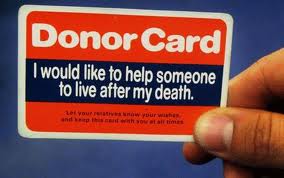The original article can be found in: Barbados Today By Latoya Burnham
Medical professionals in Barbados are fighting to get a policy that can help formulate legislation allowing organs to be donated by the deceased.
Local renal transplant surgeon Dr. Margaret O’Shea said she and others in the field had previously submitted ideas and policy recommendations to the Attorney General’s chambers, but then with a change in administration they were not sure what had happened to the plan. So they began again, to move the legislation once more.
Speaking last night at The Sylma Reeves Memorial Lecture at the Henry Frasier Lecture Theatre at the Cave Hill Campus on the topic, Diabetes and Kidney Disease – Transplantation as an Option, O’Shea noted that unlike Barbados, Trinidad had legislation where the organs of deceased persons, i.e. persons declared clinically brain dead, could be donated, reiterating that it was needed here.
In the UK two-thirds of organ donations were from deceased persons, she said, but Barbados’ laws only allowed for living donations, i.e. an organ taken from someone who is still alive, something that while appreciated, limits the number of people that can be helped.About 20 per cent of patients on dialysis could benefit from kidney transplants, said O’Shea.
“Because of the fact that you need someone to give you a kidney, a live donor, it limits the amount because for whatever reason some people don’t want to ask, or people don’t want to give. So there is just a limited pool of donors for live donors, whereas for the cadaveric or deceased donation, we have two kidneys at one time,” she said, explaining that unlike on television, no one had ever woken up after being declared clinically dead by doctors, which was a common misconception.
She said: “We should offer all families the opportunity to donate. I know we have no legislation here at the moment, but people have even come … and asked if there was any opportunity for donation, ‘I want something to happen from this unfortunate thing that has happened to my relative’. ‘I want something good to come out of this’.”
Cost-saving
It was more expensive to be on dialysis, she told the audience, than to receive a kidney transplant.
“We have a big burden of kidney disease here… We have about 220 patients on dialysis and as we mention [it costs] about $52,000 a year and more are coming on… So there is a need and I don’t know why it is slow…
“The future is that we need the legislation. People feel that even though this is common law in the UK, a lot of people within the Mministry and so on, something as big as this, as important as this, the consensus is that we need to have our own law, our own act governing brain death and brain dead donation.
“So we have no act in Barbados and we are behind the rest of the world on this, we are behind Trinidad on this. So what we are working on in the hospital and between the neurosurgery team and so on, is to develop a policy on brain death that we can push legislation, but the wheels of change move very slowly,” she stated. (LB)














